Columns
OPPOSITION TOOLS TO DEFEAT THE INCUMBENT: HISTORICAL AND EMPIRICAL PERSPECTIVES
Published
1 year agoon
By
Ekwutos Blog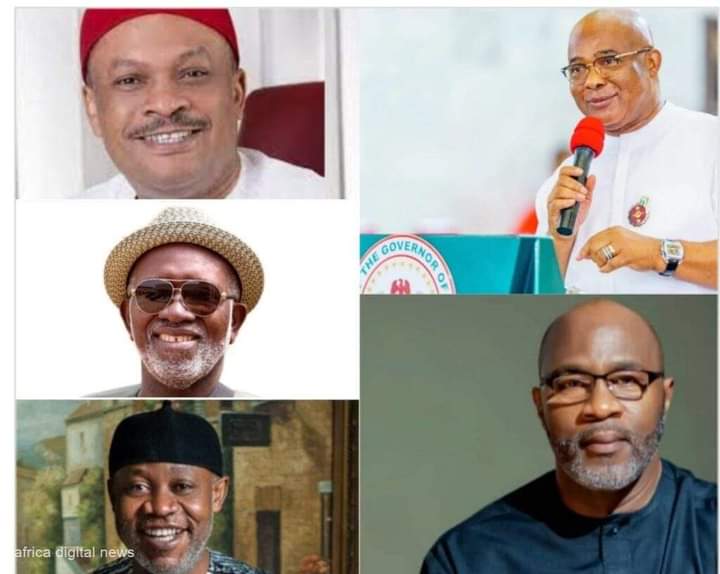
By: ONWUASOANYA FCC JONES
I do not believe in magic, because I know that magic is deceptive and as a dramatist myself, I have more than a basic understanding of what make-believe really entails. Miracle happens, but there is no absolute miracle in politics. God would rather allow us play our politics, because the last time he experimented with theocracy, there was an uprising against him, and he had to allow human king’s take over the reins in Isreal of old. So, you can understand why I can agree that God would allow some miraculous healing for an illness or even raise the dead, but insist that political success is 99% about stratagem. The man who plans the best wins the most political battles.
Politics goes hand in hand with history. Because it is one process that is repetitive. If anyone who is observant, disciplined and focused enough plays politics, chances are high he would succeed better than the man who found himself in politics and probably believes that he would be led on by chance to victory. It is only in a situation where majority of the contenders are banking on luck that the luckiest prevails, but if there are ten contenders banking on luck and just one person banking on work and stratagem, I can tell you that that one person will defeat the other ten.
Because every politics is local, I will rely on my personal experiences in Nigerian politics to discuss how the opposition, at various times within this Fourth Republic was able to unseat incumbents across States and even at the centre. There is no need pretending about it, this discourse is in relation to the upcoming Imo governorship election, and I expect that after reading this, any discerning mind would be able to advise him/herself.
Let’s take it one after each;
1. UNITY: At various times since the inception of the Fourth Republic, the opposition had sought to unseat the PDP, but like Father Ejike Mbaka would say, all those efforts ended in disgrace until all the Parties coalesced in 2012 and eventually succeeded in unseating the seemingly behemoth PDP. A disunited opposition is to the advantage of the incumbent, because no matter how unpopular an incumbent is, there is no way it wouldn’t be able to command some support and influence across a given constituency. It is an acceptable political strategy for the incumbent to sponsor division within the opposition ranks in order to deplete them. Some political observers believe that Democrats might have a hand in sponsoring the independent candidacy of RFK Kennedy, as a way of countering Donald Trump’s popularity among conservatives and unaligned voters. In relation to the upcoming Imo governorship election, you do not need to be an expert in political analysis to understand that in an election where the opposition are presenting three strong candidates, they stand no practical chance.
2. POPULAR FLAG-BEARER: Tinubu had always had an ambition to be President, but he understood that he wouldn’t fly in 2015. Even though he was the ultimate kingmaker in the newly formed APC and his support was vital to anyone who was going to emerge as the presidential candidate, he prioritised the popularity of the candidate to his personal relationships and even comfort, hence, his endorsement of General Muhammadu Buhari, who had 12 million votes in his kitty at every election. Tinubu had a lot of known ideological and political disagreements with Buhari, but he relaxed all those and focused on winning power for his Party, first. There would have been a semblance of a contest in the upcoming governorship election in Imo if a candidate like His Excellency Rt Hon Emeka Ihedioha is on the ballot. The three major opposition candidates are very unpopular and scarce in the consciousness of the average Imo electorate. To make matters worse, the trio has put up the most uninspiring campaign in the history of governorship elections in Imo State. Boring radio jingles, absence of strong media hands, lack of billboards and other publicity materials across the State worsened their poor visibility among Imo voters. None of them has strong name recognition beyond their local villages and wards and it shouldn’t come as a surprise if they lose their LGAs in this election.
3. INSTITUTIONAL SUPPORT: Running an election against an incumbent is similar to trying to lead a revolution and rarely has any revolution succeeded without defections from among the ruling class or at least, some discreet support from those within the ruling system. The incumbent is naturally expected to wield good influence on all institutions necessary for the election. But a serious opposition should be able to infiltrate these institutions. For instance in the run-up to the 2019 election, the then opposition leaders like His Excellency Distinguished Senator Hope Uzodimma and His Excellency Rt Hon Emeka Ihedioha had great influence on vital institutions. I was beaten up and detained at the Imo Airport during the primaries of the APC, because I was alarmed by the fact that the opposition had hijacked the security of the process and I raised alarm. I was beaten mercilessly, teargassed and thrown into detention. On the election day proper, one didn’t need to be told that Chief Ihedioha neutered the INEC and some of the security agents deployed for the election. Operatives of the incumbent system like us were left stranded and gasping for breath. Today, none of the opposition governorship candidates can boast of the kind of strategic relationship and sympathy that could sway these institutions. Governor Uzodimma has done his homework so well that even if there is a totally free and fair election today, he will still win with a landslide.
4. CREATIVE CAMPAIGNING: All the creative campaign events happening in Imo State are by the incumbent. If one support group is not holding a massive inauguration ceremony, another group would be organising a football tournament at the grassroots level, or an empowerment programme would be going on at another venue. The few opposition candidates who make attempts at campaigning only organise the usually boring campaign rallies which unfortunately command unimpressive crowd, mostly hired. When the APC were angling for power at the centre, they started with many creative campaign initiatives, including protest marches, and several social events. Instead of the opposition, it is rather the ruling Party that is charging up the system with various indirect but impactful campaign events across the State.
5. CAMPAIGN MAKEUP: A viable opposition should possess the qualities of an alternative government. A campaign organisation has some similarities with a football club; names play vital roles in strengthening the confidence of supporters and financiers to go along with such candidates. Among the four surviving past governors in Imo State, two are actively campaigning for the incumbent, while two are seemingly not interested, but those who know, are not confused about where their sympathy lies. None of the opposition camps has in his employ top players in election management, contact and mobilisation, media, publicity or strategy. When you look at the makeup of the campaign team of these opposition candidates, you wouldn’t help but laugh yourself to tears over the dry comedy that these campaign teams are.
MAY IMO WIN!
You may like
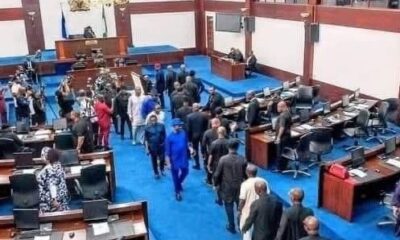

Rivers assembly’s actions against Fubara will disrupt governance, commissioner warns


The Tesla Cybercab Will Have A Surprisingly Small Battery
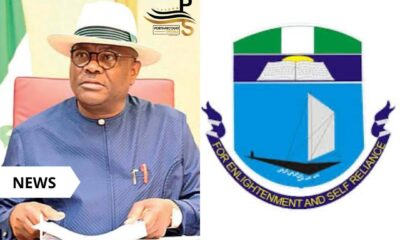

JUST IN: FCT minister Nyesom Wike, has promised to allocate land in the FCT to the University of Port Harcourt for the establishment of its Centre for Leadership and Political Studies.


Heathrow to Canary Wharf in 8 MINUTES: Virgin Atlantic to launch a flying taxi service in the UK – with passengers whisked through the air at 200mph


NASA announces Sunita Williams and Butch Wilmore’s return date to Earth
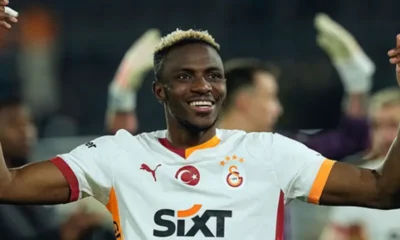

Transfer: Osimhen will decide future soon – Galatasaray president, Kavukcu
Columns
Abuja International Conference Center Built In 1991 For N240m Is Being Renovated In 2025 For N39b BY Wike…
Published
2 days agoon
March 17, 2025By
Ekwutos Blog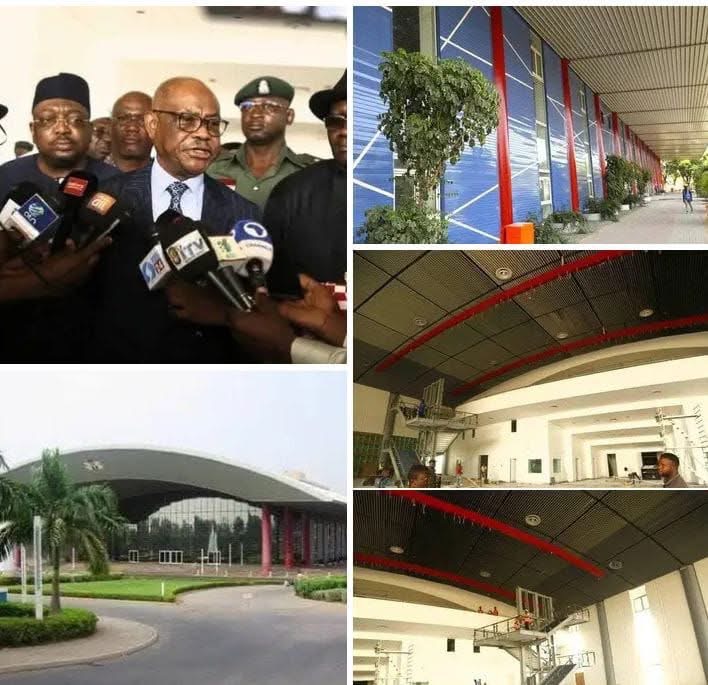
The Abuja International Conference Centre (AICC) was built at an estimated cost of $29.6 million (about ₦240 million at the exchange rate of the time). It was completed in 1991 and has since been one of Nigeria’s premier venues for national and international events.
In 2025 The Minister of the Federal Capital Territory (FCT), Mr Nyesom Ezenwo Wike – CON, GSSRS , says the FCT Administration is expending N39 billion on the rehabilitation of the Abuja International Conference Centre.
Columns
Igwebụike in action! Pre-colonial Igbo society’s remarkable approach to community development, where every man was a landlord.
Published
2 days agoon
March 16, 2025By
Ekwutos Blog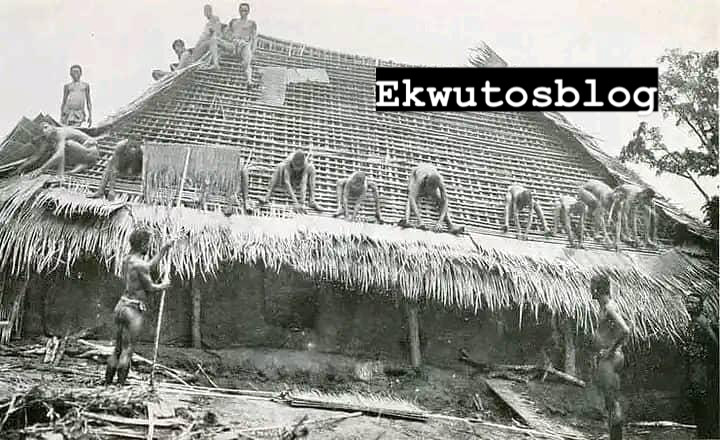
This a picture depicting the Igbo people building house collectively for one another, free. In the olden days, life was so easy. The Igbo lived a communal life. When a man get to the age of ịpụ obi, his age grade would contribute in building house for him free. He will also do so to others.
No stress. No competition. Everyone moves together. Age grade was established by our ancestors to support one another. Growth was collectively massive. The concept of Igwebụike was loud. Onye aghana nwanne ya.
No one got paid for doing so. It’s free of charge. Community development was an important role and duty of pre-colonial Igbo society.
Everyone joyfully helped one another to stand as a man and have a shelter over his head. Every Igbo man was a landlord. No tenant. Once you are of age, either you have your home in your father’s house or ị pụọ obi. Your age grade will build you a house.
Columns
Nigeria Customs Set to Introduce Automated Transire Process, Sensitises Officers, Stakeholders
Published
3 days agoon
March 15, 2025By
Ekwutos Blog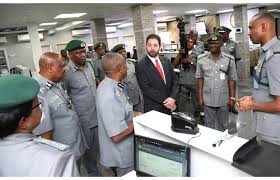
The Nigeria Customs Service (NCS) is set to introduce an Automated Transire Process (ATP), a system designed to enhance trade efficiency, minimise delays, and curb cargo diversion.
Speaking at a sensitisation session at Apapa Area Command on Thursday, 10 March 2025, the Comptroller-General of Customs (CGC), Adewale Adeniyi, represented by the Zonal Coordinator, Zone A, Assistant Comptroller-General of Customs (ACG) Charles Orbih, described the initiative as a transformative development for the NCS.
He stated, “This is not merely a technological upgrade; it represents a strategic shift aimed at positioning the Nigeria Customs Service and the nation at the forefront of global trade efficiency, security, and transparency.”
He further explained that the Automated Transire Process, developed in-house by NCS ICT officers, is expected to significantly reduce customs clearance times, enhance tracking capabilities, and improve accountability.
ACG Orbih emphasised that real-time tracking and data transparency would mitigate the risks associated with cargo diversion while boosting stakeholders’ confidence in the system.
He added that faster access to goods at ports and terminals would benefit importers, exporters, and all players in the logistics chain.
Reflecting on the initiative’s origins, the Zonal Coordinator recalled that the automation project stemmed from a directive issued during last year’s CGC conference, where the ICT/Modernisation Department was tasked with automating the transfer process by the first quarter of 2025. This milestone has now been achieved.
The Deputy Comptroller-General in charge of ICT/Modernisation, DCG Kikelomo Adeola, represented by ACG Zanna Gaji, further outlined the project’s benefits.
He remarked, “This system will enhance efficiency and transparency, improve revenue collection, and minimise opportunities for corruption by ensuring a fair and predictable process.”
He noted that the automation would strengthen Nigeria’s position in global trade and promote international best practices.
ACG Gaji stressed that the rollout would be gradual, beginning with a user acceptance test and a pilot phase at one of the bonded terminals.
“We cannot introduce the system immediately. It is essential to engage stakeholders, conduct hands-on testing, and refine the system based on feedback,” he stated.
During the feedback session, Area Controllers within the Apapa environs underscored the importance of incorporating all relevant units and addressing the absence of a watchlist feature.
Stakeholders also sought clarification on the official launch date and requested adjustments to align the system more effectively with operational requirements.
In response, Assistant Comptroller of Customs Usman Abba, the team leader of the ATP development project, assured attendees that the system would be fully integrated with all relevant units, departments, and commands before full implementation.

Rivers assembly’s actions against Fubara will disrupt governance, commissioner warns

The Tesla Cybercab Will Have A Surprisingly Small Battery

JUST IN: FCT minister Nyesom Wike, has promised to allocate land in the FCT to the University of Port Harcourt for the establishment of its Centre for Leadership and Political Studies.
Trending

 Trending5 months ago
Trending5 months agoNYA demands release of ‘abducted’ Imo chairman, preaches good governance
- Politics1 year ago
Nigerian Senate passes Bill seeking the establishment of the South East Development Commission.
- Business5 months ago
US court acquits Air Peace boss, slams Mayfield $4000 fine

 Politics5 months ago
Politics5 months agoMexico’s new president causes concern just weeks before the US elections
- Entertainment5 months ago
Bobrisky transferred from Immigration to FCID, spends night behind bars
- Entertainment5 months ago
Bobrisky falls ill in police custody, rushed to hospital

 Politics5 months ago
Politics5 months agoRussia bans imports of agro-products from Kazakhstan after refusal to join BRICS

 Politics5 months ago
Politics5 months agoPutin invites 20 world leaders

